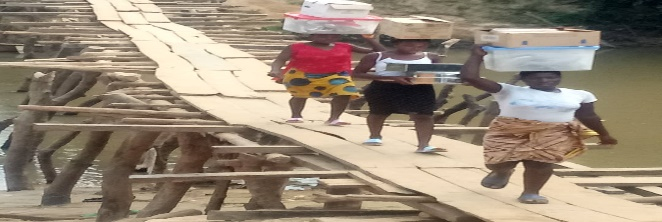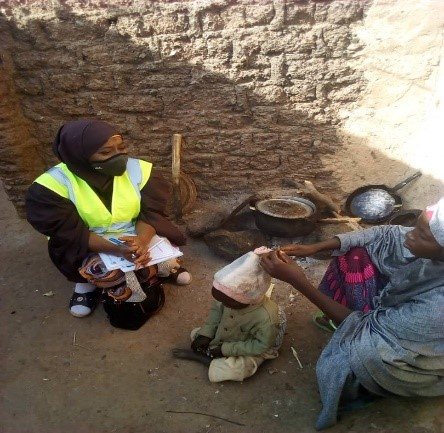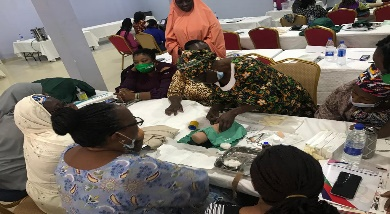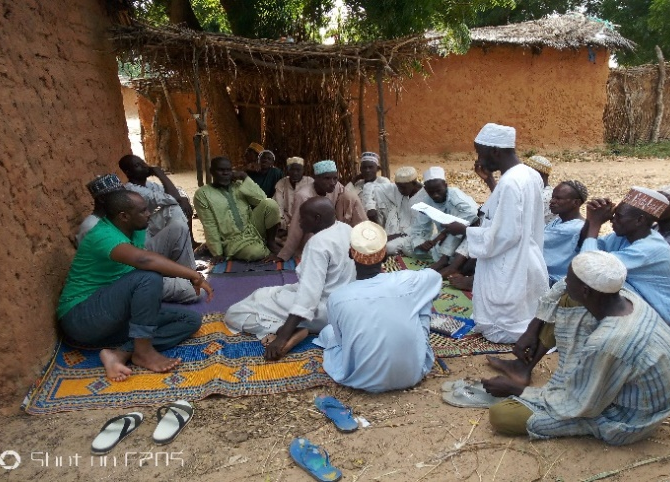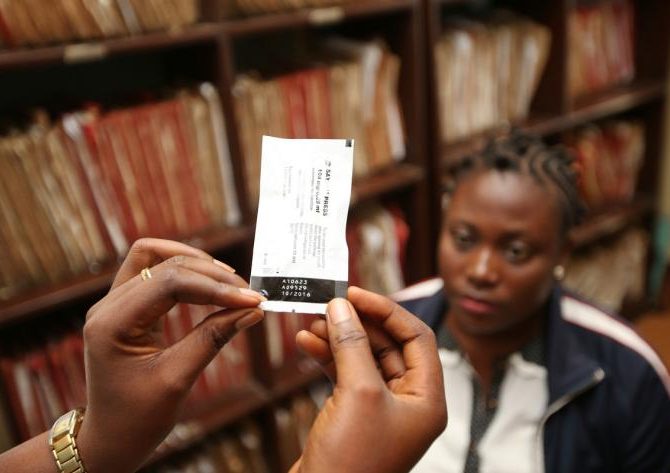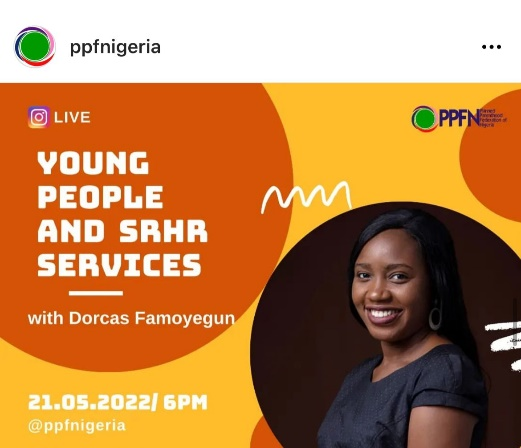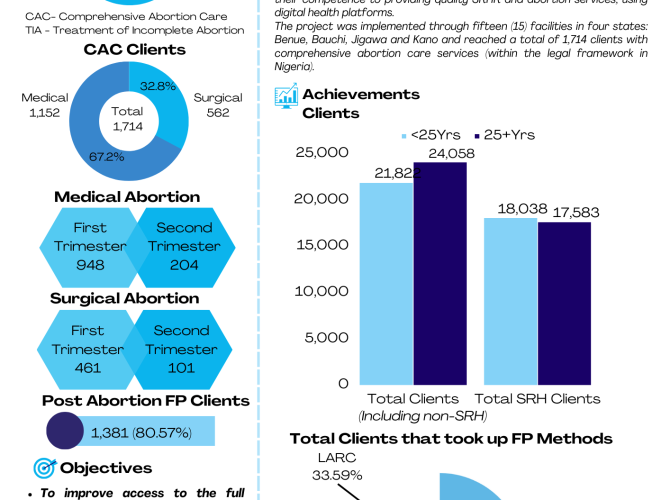Donor: IPPF
Year/Duration of implementation: January 2021 to December 2021
Beneficiaries: Women and girls of reproductive age, Young people, poor and socially excluded, PWDs, General population
Challenges/Gap that the project addressed (what is the problem): Nigeria has a shortage of qualified health practitioners, especially in rural areas. According to NDHS 2018, over 50% of deliveries and 33% of antenatal care were attended by unskilled providers with rural areas accounting for a higher proportion. In addition to this, the high rate of unintended pregnancies with about 2.5 million unplanned pregnancies occurring annually can be attributed to limited access to comprehensive FP&SRH information and services. About 19% of the population of women o reproductive age (WRA) have an unmet need for contraceptives with young people demonstrating a greater need. Despite their high unmet need, most primary health facilities do not address the SRH needs of young people as they are often not skilled and equipped to integrate YFS into SRH services. Socio-cultural barriers exist in various parts of the country, particularly in northern Nigeria that impedes the availability and accessibility of comprehensive SRH information and services, especially for women and young people. Women and girls continue to face violence and experience harmful practices such as those that permit marriage before the age of 18 year. Certain population groups such as People with Disability (PWD) groups face considerable stigma, discrimination, and difficulties in accessing SRH services.
Intervention (what did we do?): The capacity of service providers was strengthened to deliver quality integrated SRH services (including AYFS) through 45 PPFN clinics and support GBV prevention and response activities in the communities with technical support from PPFN to deliver LARC, post-abortion care, GBV counseling and referral services. Our SDPs were upgraded to enable service provision for PWDs. Targeted outreaches served as an avenue to expand access of services to our target group, pre outreach engagement with the community and religious leaders served as an avenue for values clarification and helped create an enabling environment for service delivery. We leveraged our network of trained CHEWs, CBDs, and PPMVs in the communities to deliver a range of free/subsidized quality integrated SRHR services and information door-to-door directly to clients, especially in the rural and hard-to-reach areas. In a bid to also tailor our services and approach accordingly for people who cannot access the facilities due to their schedules, we introduced workplace-integrated outreaches for working-class groups in corporate organizations and artisan groups. Through our DHI applications, we were able to ensure the continuation of SRH service provision with minimum disruption resulting from the COVID crisis and security challenges.
Outcomes/Results (what are the achievements): A total of 29,400,408 SRH services were provided out of which 11,760,163 services were provided to young people below 25.
